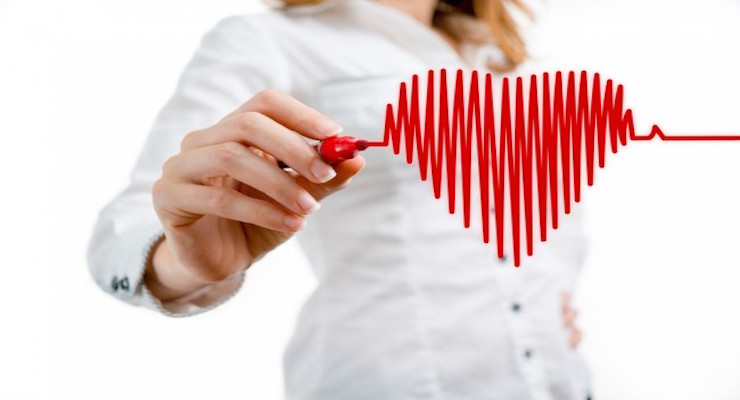Despite increased awareness of heart disease in women, it’s still thought of as a “man’s disease” and dangerously ignored. Only 54% of women recognize that heart disease is the number one killer of women in the United States, at the rate of one in four female deaths.
Women are notorious for ignoring their health when they feel too busy, don’t have what they perceive as risk factors, or they’re already fit from a good diet and exercise. April S. of Alabama, who had a heart attack just after she turned 51 said, “I was always focusing on my family’s health, busy nurturing my loved ones. Women need to remember to put their air mask on [first].”
Additionally, women are regularly getting screened for cancer, yet still ignoring their number one killer. Mary M., a 41-year-old from upstate New York said, “Honestly, I feel like I don’t have the risk factors for it, so I don’t worry about it. Women have so many other things to take into consideration, it falls pretty far down the list.” Kathy G. from California echoed Mary’s sentiment, “I see the [doctor] for too much as it is! Breast exam, mammogram, pap, diabetes, arthritis…”
If you cannot seek medical care due to finances, there may be low or no cost programs like WISEWOMAN in your area that provides low-income, underinsured, or uninsured women with risk factor screening, lifestyle programs, and referral services.
Perhaps the scariest reason women aren’t getting regular heart disease screenings is due to the medical community itself. Kim D., another 41-year-old New Yorker whose father suffered his first heart attack at 50 stated, “If my doctor hasn’t brought it up, I’m not going to make myself sick worrying about it.”
[tweetthis]#HeartDisease is #1 killer of #women in US, at the rate of 1 in 4 #female deaths. @lindagimmeson[/tweetthis]
Symptoms Of Heart Attacks In Women
What’s perhaps most confusing is that not every woman will have symptoms, nor are they always easy to decipher as life-threatening. Almost 64% of women who die suddenly of coronary heart disease have no previous symptoms while others simply ignore them.
Furthermore, symptoms of heart disease in women might mimic the flu or acid reflux. You may continue to ignore the signs thinking it’s “just stress” or aging. You may feel you’ve just “slept wrong”, or are just “under the weather”.
The American Heart Association lists the general symptoms of heart attacks in women, while their sister site Go Red For Women lists some of the confusing signals of hard-to-recognize heart attack symptoms.
Like men, the most common heart attack symptom in women is chest pain or discomfort, however, it is important to know that women are more likely to experience things like shortness of breath, nausea and/or vomiting, and back or jaw pain. Likewise, the Cleveland Clinic advises women not to ignore these three subtle heart attack symptoms.
Risks Of Heart Disease In Women
If you smoke, have a poor diet or lack of exercise, heavy alcohol use, or pre-existing conditions like diabetes or obesity, you may also worry about being judged by emergency and hospital staff and let that affect your willingness to take action. But these things do increase the risk of heart disease, just like high blood pressure, and high LDL cholesterol and must not be the reason you ignore your heart health. There are several other things you may not associate as possible heart disease risk factors that are worth paying attention to as well. Doctors with ACLS and PALS recertification credentials will also be able identify these factors.
Remember, even the fittest women can be struck by a sudden heart attack since coronary heart disease does not discriminate based on lifestyle alone. There are women’s heart disease risk factors you can’t control as outlined by the Office on Women’s Health, U.S Department of Health and Human Services.
Being proactive about your heart health is very important. There are things women should do to fact find and then mitigate future coronary heart disease, and that starts with both a review of your family’s health history and a visit to your Primary Care Physician. If you feel embarrassed or anxious about doctor’s appointments, taking someone with you as an advocate can help get you a diagnosis before you actually get sick.
Linda Gimmeson is a Career Coach dedicated to helping others discover their strengths and gain the courage to chase their dreams. @lindagimmeson

















